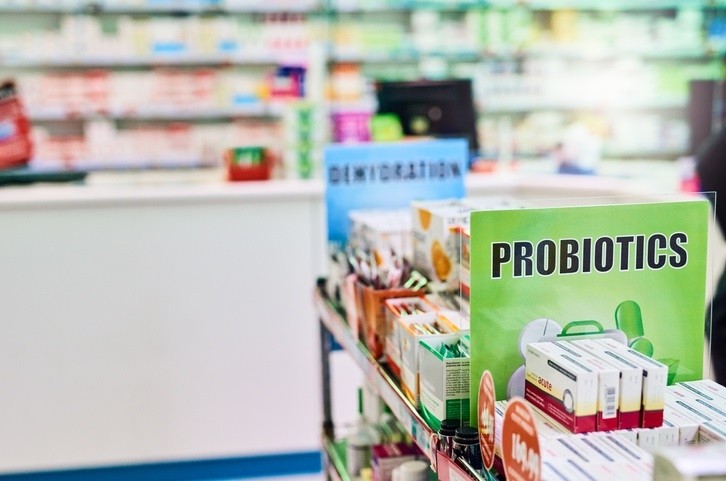Probiotic regulation call: Hong Kong Consumer Council urges government to set up legislation to oversee category

The findings, published on January 15, yielded two major findings.
The first finding showed that out of the 40 products reviewed, two were said to contain Enterococcus faecalis, a strain which the Council said was not recommended by the Joint FAO / WHO Working Group for use as a probiotic, due to concerns around safety.
Currently, there is no legislation or standards in Hong Kong to govern the provision of information pertaining to relevant safety and efficacy of dietary supplements, including probiotics.
According to Hong Kong Health Food Association, formulations that are made into pharmaceutical dosage forms, and contain either Chinese traditional medicinal herbs or vitamins and fall within the definition of Chinese proprietary medicine or pharmaceutical product, will have to be registered as Chinese proprietary medicine or over-the-counter pharmaceutical product respectively.
Referencing mainland China, the European Union, and Canada, the Council said that regulations for dietary supplements were set up in these regions, and it has urged the Hong Kong government to do the same to ensure consumer safety.
Based on information given to NutraIngredients-Asia, the two products containing Enterococcus faecalis were PicoLabb Formulas’ Super Probiotics and Procalun’s UTOKYO17 Probiotics originated from the US and Japan respectively.
The former, a soft capsule product, contains Enterococcus faecalis TH10, as well as Bifidobacterium species, Lactobacillus species, Streptococcus thermophilus, and Bacillus coagulans. It claims to improve gastrointestinal health and immunity.
The latter, a powder product, also contains kefir-isolated lactic acid bacteria, Lactobacillus, Lactococcus lactis, Kluyveromyces marxianus, yeast, Bacillus, Bifidobacterium longum, Lactobacillaceae, and Clostridium butyricum. Similarly, it claims to improve gastrointestinal health, immunity, as well as allergy and eczema.
The council said in its report that Enterococcus faecalis was a relatively unstable strain and was easily contaminated, citing the Joint Food and Agriculture Organization (FAO) / World Health Organisation (WHO) Working Group.
“According to the latest safety assessment by the Joint FAO/WHO Working Group, Enterococcus faecalis and Enterococcus faecium are common probiotics belonging to the Enterococcus genus; yet these two strains of bacteria are relatively unstable, easily contaminated or have the risk of turning into pathogens, and have resistance to the antibiotic vancomycin, it is therefore not recommended to use these 2 strains of bacteria as probiotics for human consumption,” the council said.
Findings of a clinical trial published on the International Forum of Allergy & Rhinology, on the other hand, showed that Enterococcus faecalis could improve symptoms of seasonal allergic rhinitis.
A review published on Frontiers in Microbiology in 2018 noted that due to safety reasons, the application of enterococci as probiotic or feed additive has not been sufficiently exploited, despite their significant antibacterial activity and probiotic potential.
An article published on International Probiotics Association (IPA) website in 2021 noted that the Enterococcus genus was known for being “mainly pathogenic”.
However, it also acknowledged that while there are concerns over how Enterococcus could develop and acquire anti-microbial resistance to commonly used antibiotics, its probiotic strains “do not appear to have the ability to cause antibiotic resistance.”
Products profile
Out of the 40 probiotics reviewed, the Council said that all carried health claims, mainly on improving gastrointestinal health, immune health, eczema / allergy, and vaginal health.
Seven were single-strain products and the remaining 33 multi-strain products.
Lactobacillus was the most used, with 36 products (90 per cent) claiming to contain it, with examples such as Lactobacillus acidophilus, Lactobacillus rhamnosus, and Lactobacillus casei.
Bifidobacterium was the next most used, with 33 products (82.5 per cent) containing it, such as Bifidobacterium bifidum, Bifidobacterium lactis, Bifidobacterium animalis, and Bifidobacterium longum.
Five products also contained Streptococcus thermophilus, while two contained Enterococcus faecalis.
Twenty-six of them were synbiotics, in which prebiotics such as fructooligosaccharide, xylitol, inulin, and maltodextrin were added.
Most products were in the form of powder, tablets, and capsules. There was also a jelly, soft capsule, and soft gummy product.
Prices of the products ranged from HKD$99 (US$12.60) to HKD$788 (US$100.70).
The council has urged the government to set up legislations to regulate dietary supplement, including the use of probiotics, to protect consumer safety.
It added that authorities in Mainland China, the US, Canada, and the European Union have already set up relevant legislation.
“The Council urges the Government to refer to international industry standards or regulations of different jurisdictions and formulate relevant standards or legislation on dietary supplements, ensuring that probiotic products available on the market are safe, with satisfactory ingredients and efficacy, so as to safeguard consumer health.”
Two in three products did not meet labelling guidelines
In addition, the review found that only 15 samples (37.5 per cent) had followed the voluntary labelling guidelines set by the industry, including stating the genus, species, and strain of the probiotics, as well as the quantities in colony forming unit (CFU).
The review claimed that for the remaining products, they were labelled with either the strain number (one product), or genus (three products), or species (20 products).
One product, G-Niib Immune Kids SIM03, had no information about the relevant probiotics, except for the statement “comprehensive probiotics developed by a local university.” The product claims to improve gastrointestinal health, immunity, allergy, and eczema.
The review also claimed that some products (19 out of 40) have suggested that consumers could consume different doses of probiotics according to their personal needs or health conditions.
“As general consumers are not healthcare professionals and are incapable of self-diagnosis, they may consume inappropriate doses of probiotics and increase the risk of side effects, or fail to achieve expected results,” the Council said.
Regulations elsewhere
The EU is one of the strictest authorities in regulating probiotics.
No health claim specific to probiotics has been authorities in the EU and since 2007, the European Commission considers the term ‘probiotic’ to be an unauthorised term that cannot be used in food labelling.
However, over the years, countries such as Italy, the Czech Republic, Spain, Denmark, the Netherlands, and France, have permitted the use of the term.
In South East Asia, probiotics are regulated differently across the region.
In Malaysia, probiotics in foods and beverages are regulated by the Food Safety and Quality Division (FSQD), while probiotic health supplements are regulated by the National Pharmaceutical Regulatory Agency (NPRA). Both FSQD and NPRA are divisions under the Ministry of Health.
In Thailand, the Food and Drug Administration is the authority regulating probiotics in both food and supplements.
The legal definition of probiotics is Thailand is “probiotic microorganisms mean viable microorganisms that are beneficial to body if intake in sufficient amount.”
In 2022, the Chinese Institute of Food Science and Technology (CIFST) also officially launched a document detailing the “General standard of probiotics for food use”. The document is not from the government but is set as a voluntary industry standard.



















